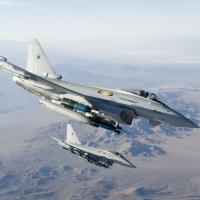Sir William Walton (1902-1983) was commissioned to write a new setting of the Te Deum Laudamus (We praise Thee O God) for the Queen’s Coronation in 1953. The text dates from the early days of Christianity and is said to have been written by St Ambrose. It is still used in Anglican and Roman Catholic churches as a hymn of praise to celebrate an occasion and to give thanks.
As the Order of Service for the Coronation states: ‘The solemnity of the Queen’s Coronation being thus ended, the people shall stand and the choir shall sing.’
Born in Oldham, Walton’s early life revolved around music. His musician father encouraged him to sing in the church choir and later at Christ Church, his Oxford college. After Oxford he was taken up by the Sitwell family and composed the first version of Façade, an ‘entertainment’ for chamber ensemble and poetry, in 1923. During the Second World War Walton was exempted from military service in order to compose music for wartime films, including Henry V and The First of the Few about the designer of the Spitfire.
The various sections of the Te Deum call for dynamic extremes sung by double semi-choruses as well as double choir. The hushed section ‘Holy, Holy, Holy’ is first sung almost as in private prayer by just one semi-chorus, while the urgent rousing plea: ‘Let me never be confounded’ is repeated more reverently to end the work and underline the significance of the text.
A few months before the Coronation, with typically English understatement, Walton wrote about this work to a friend, ‘I think it is going to be rather splendid’.
We praise thee, O God: we acknowledge thee to be the Lord.
All the earth doth worship thee: the Father everlasting.
Tothee all Angels cry aloud: the Heavens, and all the Powers therein.
Tothee Cherubin and Seraphin continually do cry,
Holy, Holy, Holy, Lord God of Sabaoth;
Heaven and earth are full of the Majesty of thy glory.
The glorious company of the Apostles praise thee.
The goodly fellowship of the Prophets praise thee.
The noble army of Martyrspraise thee.
The holy Church throughout all the world doth acknowledge thee –
The Father of an infinite Majesty; Thine honourable, true and only Son;
Also the Holy Ghost, the Comforter.
Thou art the King of Glory, O Christ.
Thou art the everlasting Son of the Father.
When thou tookest upon thee to deliver man:
Thou didst not abhor the Virgin’s womb.
When thou hadst overcome the sharpness of death,
thou didst open the Kingdom of Heaven to all believers.
Thou sittest at the right hand of God: in the glory of the Father.
We believe that thou shalt come to be our Judge.
Wetherefore pray thee, help thy servants,
whom thou hast redeemed with thy precious blood.
Make themto be numbered with thy Saints in glory everlasting.
O Lord, save thy people, and bless thine heritage.
Govern them and lift them upfor ever.
Day by day we magnify thee;
And we worship thy Name, ever world without end.
Vouchsafe, O Lord, to keep us this day without sin.
O Lord, have mercy upon us, have mercy upon us.
O Lord, let thy mercy lighten upon us as our trust is in thee.
O Lord, inthee have I trusted: let me never be confounded.
